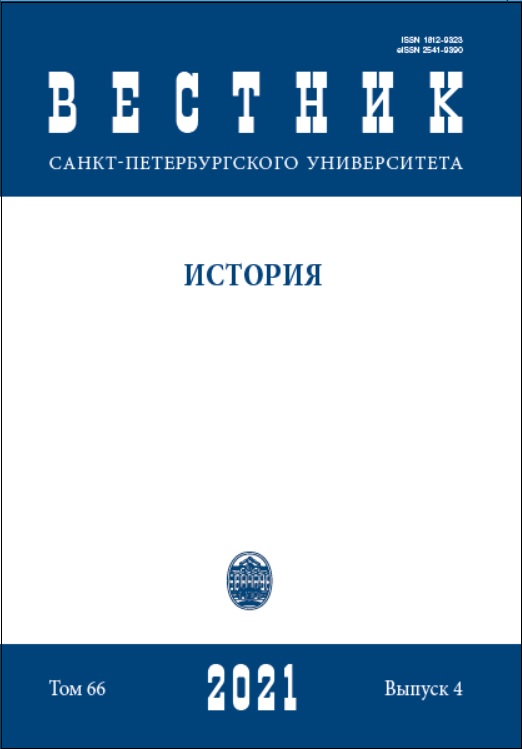Service of preachers in the Russian army during the First World War
DOI:
https://doi.org/10.21638/spbu02.2021.403Abstract
The service of preachers in the Russian army in 1917 is examined in this article. The Institute of Preachers was established in response to the growth of revolutionary propaganda in the army. The process of establishing a position and official instructions is analyzed in the article. The main tasks of the army preachers were conducting talks and speaking to the soldiers. Data on the appointment, transfer and dismissal of priests from the position of preacher are given. The staff was supposed to be staffed with competent and experienced clergy. However, in some armies this position was not replaced for a long time, while in others the priests were often replaced. Data on the activities of the preachers of the armies are provided. Information on interaction with regimental priests is reported. From the observations of the preachers, one can draw conclusions about the decline in the spirit of the military clergy. The subject of the speeches, its compliance with the instructions of the protopresbyter are considered. The article focuses on the issue of the attitude of soldiers to preachers and their speeches. It was found that it ranged from benevolent to openly expressed discontent and aggression. Though contemporaries praised the work of the army preachers, the reports paint a less positive picture. Some preachers did not fulfill the duties assigned to them, they allowed evasion from service in demoralized military units, familiarity with officers. The work of conscientious priests could not bring serious results in the current social and political situation. The article was prepared using archival materials (RSHA, RSMHA).
Keywords:
military priesthood, Department attached to protopresbyter of military and navy priesthood, army preachers, the First World War, February revolution
Downloads
Downloads
Published
How to Cite
Issue
Section
License
Articles of "Vestnik of Saint Petersburg University. History" are open access distributed under the terms of the License Agreement with Saint Petersburg State University, which permits to the authors unrestricted distribution and self-archiving free of charge.





